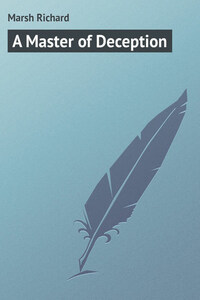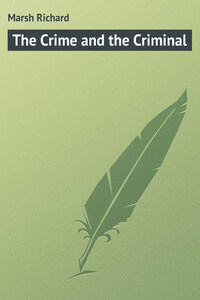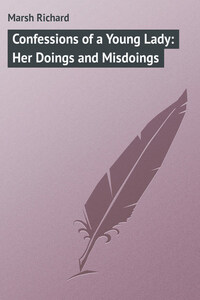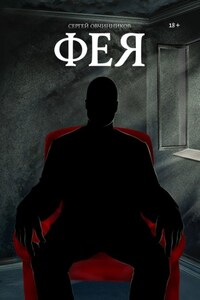CHAPTER I
THE INCLINING OF A TWIG
When Rodney Elmore was eleven years old, placards appeared on the walls announcing that a circus was coming to Uffham. Rodney asked his mother if he might go to it. Mrs. Elmore, for what appeared to her to be sufficient reasons, said "No." Three days before the circus was to come he went with his mother to Mrs. Bray's house, a little way out of Uffham, to tea. The two ladies having feminine mysteries to discuss, he was told to go into the garden to play. As he went he passed a little room, the door of which was open. Peeping in, as curious children will, something on a corner of the mantelpiece caught his eye. Going closer to see what it was, he discovered that there were two half-crowns, one on the top of the other. The desire to go to the circus, which had never left him, gathered sudden force. Here were the means of going. Whipping the two coins into the pocket of his knickerbockers, he ran from the room and into the garden.
During the remainder of the afternoon the half-crowns were a burden to him. Not because he was weighed down by a sense of guilt; but because he feared that their absence would be discovered; that they would be taken from him; that he would be left poor indeed. He kept down at the far end of the garden, considering if it would not be wiser to conceal them in some spot from which he would be able to retrieve them at the proper time. But Mrs. Bray's was at, what to him was, a great distance from his own home; he might not be able to get there again before the eventful day. When the maid came to fetch him in the coins were still in his pocket; they were still there when he left the house with his mother.
On the eventful day his mother had to go to London. Before she went she told Rodney that she had given the servant money to take him to the circus. This was rather a blow to the boy, since he found himself possessed of money which, for its intended purpose, was useless. He had hidden the half-crowns up the chimney in his bedroom. Aware that it might not be easy to explain how he came to be the owner of so much cash, there they remained for quite a time. So far as he knew, nothing was said by Mrs. Bray about the money which had gone; certainly no suspicion attached to him.
Later he went to a public school. During the third term he went with the school bicycle club for a spin. The master in charge had a spill. As he fell some coins dropped out of his pocket. Rodney, who was the only one behind him, saw a yellow coin roll into a rut at the side of the road. Alighting, he pressed his foot on it, so that it was covered with earth. Then, calling to the others, who, unconscious of what had happened, were pedalling away in front, he gave first aid to the injured. The master had fallen heavily on his side. He had sprained something which made it difficult for him to move. A vehicle was fetched, which bore him back to school, recovery having first been made of the coins which had been dropped. It was only later he discovered that a sovereign was missing. The following day a search-party went out to look for it, of which Rodney Elmore was a member. They found nothing. As they were starting back Rodney perceived that his saddle had worked loose. He stayed behind to tighten it. When he spurted after the others the sovereign was in his pocket. Mr. Griffiths was reputed to be poor. It was Elmore who suggested that a subscription should be started to reimburse him for his loss. When Mr. Griffiths heard of the suggestion-while he laughingly declined to avail himself of the boy's generosity-he took Elmore's hand in a friendly grip. Then he asked the lad if he would oblige him by going on an errand to the village. While he was on the errand Rodney changed the sovereign, which he would have found it difficult to do in the school.
At the end of the summer term in his last year Elmore was invited by a schoolboy friend named Austin to spend part of the holidays with him in a wherry on the Broads. Mrs. Elmore told him that she would pay his fare and give him, besides, a small specified sum which she said would be sufficient for necessary expenses. Her ideas on that latter point were not those of her son. Rodney's notions on such subjects were always liberal. Good at books and games, he was one of the most popular boys in the school. Among other things, he was captain of cricket. At the last match of the season he played even unusually well, carrying his bat through the innings with nearly two hundred runs to his credit, having given one of the finest displays of hard hitting and good placing the school had ever seen. He was the hero of the day; owing to his efforts his side had won. Flushed with victory, with the plaudits of his admirers still ringing in his ears, he strolled along a corridor, cricket-bag in hand. He passed a room, the door of which was open. A room with an open door was apt to have a fatal fascination for Rodney Elmore; if opportunity offered, he could seldom refrain from peeping in. He peeped in then. On a table was a canvas bag, tied with a string. He recognised it as the bag which contained the tuck-shop takings. Since the tuck-shop had had a busy day, the probability was that the bag held quite a considerable sum. He had been wondering where the money was coming from to enable him to cut a becoming figure during his visit to Austin. Stepping quickly into the room, he emptied the canvas bag into his cricket-bag; then, going out again as quickly as he had entered, he continued his progress.














